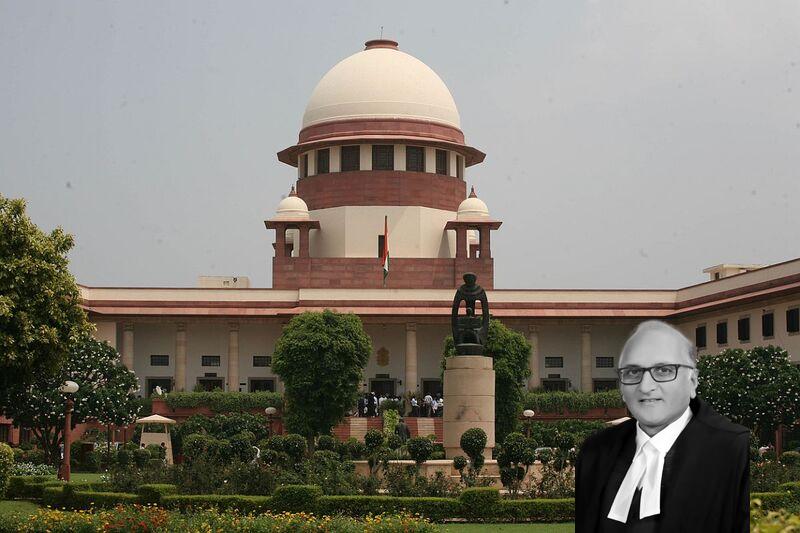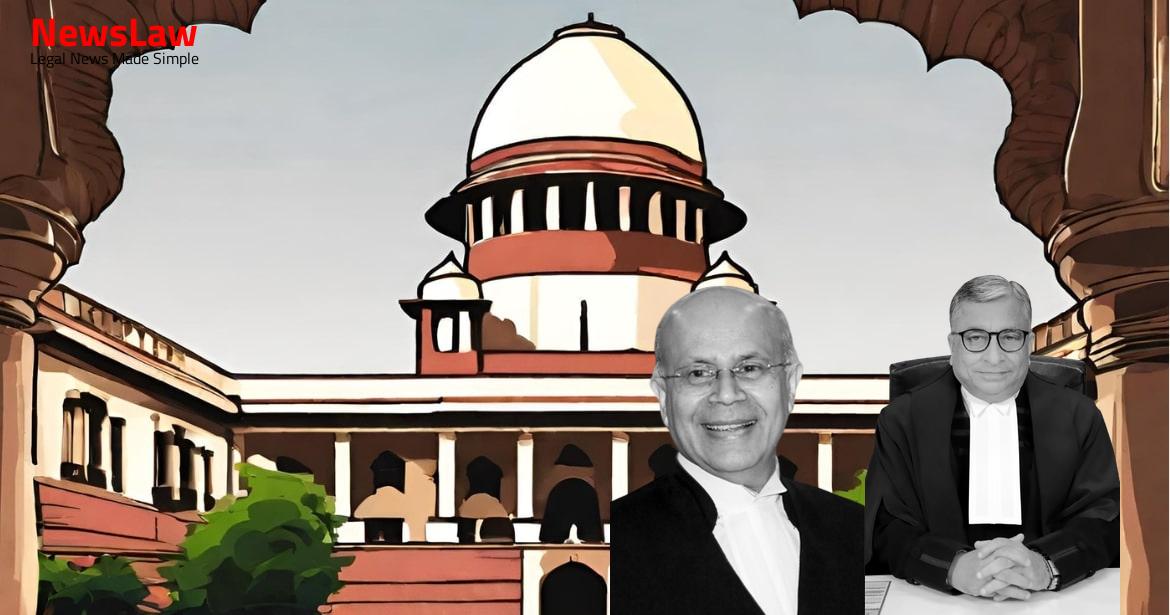The writ-petitioner organisation, approaches this court under Article 32 of the Constitution, seeking issuance of appropriate orders directing the respondents [Union government, and each State/UT government – collectively referred to as ‘respondent-state’] to take steps for implementing the provisions of the Sexual Harassment at Workplace (Prevention, Prohibition and Redressal) Act, 2013 read with the Sexual Harassment of Women at Workplace (Prevention, Prohibition and Redressal) Rules, 2013 [hereafter “Act/POSH Act” or “Act” and “Rules/POSH Rules” respectively]. Directing all the States/UTs to ensure reporting and collection of Annual Compliance Reports from all workplaces by all the District Officers of respective States as per Section 21 and 22 of the Act; g. Further, in compliance with orders of this court, numerous states filed affidavits highlighting steps taken by their respective governments in furtherance of implementing the Act and Rules in letter and spirit. These directions are comprehensive with regards to seeking compliance of the Act by the appropriate government [as defined under Section 2(b)] and its many departments, authorities, institutions, etc. ; the High Courts and the courts it supervises; specific non-state authorities/organisations such as – statutory bodies of professionals (at the apex and state level), universities and other educational institutions, hospitals/nursing homes, etc. To fulfil the promise that the PoSH Act holds out to working women all over the country, it is deemed appropriate to issue the following directions: (i) The Union of India, all State Governments and Union Territories are directed to undertake a timebound exercise to verify as to whether all the concerned Ministries, Departments, Government organizations, authorities, Public Sector Undertakings, institutions, bodies, etc. The information furnished shall also be updated from time to time.
(v) The authorities/management/employers shall regularly conduct orientation programmes, workshops, seminars and awareness programmes to upskill members of the ICCs/LCs/ICs and to educate women employees and women’s groups about the provisions of the Act, the Rules and relevant regulations. (viii) A copy of this judgment shall be transmitted to the Secretaries of all the Ministries, Government of India who shall ensure implementation of the directions by all the concerned Departments, Statutory Authorities, Institutions, Organisations etc. (ix) The Registry of the Supreme Court of India shall transmit a copy of this judgment to the Director, National Judicial Academy, Member Secretary, NALSA, Chairperson, Bar Council of India and the Registrar Generals of all the High Courts. In addition to these detailed directions, a few aspects relating to the effective implementation of the POSH Act highlighted in the present writ petition, require our attention. To address the gaps where there is no ICC (i.e., for those working in a workplace that employs less than 10 workers or where the employer themselves are the respondent), the Act provides for an LC in each district, which is to be constituted by the District Officer under Section 6.
While Section 21(1) does not mention the ICC report being forwarded to the District Officer, Section 22 right after, states that the employer is mandated to mention in its report the number of cases lodged and disposed (if any), and even in the absence of a report it must intimate the numbers to the District Officer. Even in terms of payment and fees – the District Officer is responsible for payment of allowances to the Chairman and members of the LC, which it receives from the agency set up by the State Government ( ref : Section 8 of the Act). The District Officer shall, – (a) monitor the timely submission of reports furnished by the Local Committee; (b) take such measures as may be necessary for engaging non- governmental organisations for creation of awareness on sexual harassment and the rights of the women.” While the language used in Section 5 is ‘may’, the context of the statute – as elaborated above, and specifically Section 20 (which uses ‘shall’ and obligates the District Officer to perform pivotal functions) makes it quite clear that the District Officer, is the most important functionary in the system, tasked with keeping the redressal and monitoring framework both intact, and smoothly running. It is also clear that where a discretion is conferred upon a public authority coupled with an obligation, the word ‘may’ which denotes discretion should be construed to mean a command.
District Officers were in most states notified after notice of this writ petition was served on them, and even among those states that have taken action – they have simply notified a specific post as District Officer, without providing any specific details of the officers, their contact information, etc. Only a handful of states have provided any details of ‘nodal officers’– but even among these, the nodal officers are specific posts notified, and not individuals at every taluka, ward, municipality, etc. Similar range of activities must be conducted for the nodal officers appointed and LCs constituted by each district officer.
Further, the inclusion of definitions of ‘domestic worker’, and ‘unorganized sector’ in Section 2, which though not expressly referred to in the substantive content of the Act, is telling: “ (e) “domestic worker ” means a woman who is employed to do the household work in any household for remuneration whether in cash or kind, either directly or through any agency on a temporary, permanent, part time or full time basis, but does not include any member of the family of the employer;” “(p) “ unorganised sector ” in relation to a workplace means an enterprise owned by individuals or self-employed workers and engaged in the production or sale of goods or providing service of any kind whatsoever, and where the enterprise employs workers, the number of such workers is less than ten.” The inclusion of these definitions, has greatly expanded the scope of this Act’s application. An aggrieved domestic worker, thus, can take action against a person residing in the house they work at, using the LC framework; see Section 2(o) which defines ‘workplace’ and includes under sub-clause (vi) “a dwelling place or house”: “(o) “ workplace ” includes— (i) any department, organisation, undertaking, establishment, enterprise, institution, office, branch or unit which is established, owned, controlled or wholly or substantially financed by funds provided directly or indirectly by the appropriate Government or the local authority or a Government company or a corporation or a co-operative society; (ii) any private sector organisation or a private venture, undertaking, enterprise, institution, establishment, society, trust, non-governmental organisation, unit or service provider carrying on commercial, professional, vocational, educational, entertainmental, industrial, health services or financial activities including production, supply, sale, distribution or service; (iii) hospitals or nursing homes; (iv) any sports institute, stadium, sports complex or competition or games venue, whether residential or not used for training, sports or other activities relating thereto; (v) any place visited by the employee arising out of or during the course of The inclusion of nominees from such NGOs is also helpful, because in a context where LCs may convey a sense of formality, women find it easier to approach local NGOs; this is one of the finding in a 2015 International Labour Organization (ILO) report.
Similarly Section 20 and 24, which obligate the district officer and appropriate government to take steps to publicise the Act, is limited by Section 24 which states that: “The appropriate Government may, subject to the availability of financial and other resources, — (a) develop relevant information, education, communication and training materials, and organise awareness programmes, to advance the understanding of the public of the provisions of this Act providing for protection against sexual harassment of woman at workplace; (b) formulate orientation and training programmes for the members of the [Local Committee].” (emphasis supplied) In the absence of a delineated budget to pay the concerned officers and conduct events for awareness and training, various LCs are rendered infructuous or remain vacant. The directions prayed for in the present writ petition, can be traced directly to the obligations and duties set out in the express provisions of this Act: Prayer Provision under the Act Public functionary in charge/ obligation on (a) Implement the provisions of the POSH Act and Rules – Union of India, State governments, and union territories (b) Notify and appoint district officers Section 5 State and UT governments (c) Appointing LCs in each district Section 6 and 7 District Officer (d) Appointing nodal officers Section 6(2) District Officer (e) Constituting ICCs in all workplaces as defined under s. Appropriate Government to monitor implementation and maintain data.- The appropriate government shall monitor the implementation of this Act and maintain data on the number of cases filed and disposed of in respect of all cases of sexual harassment at workplaces.” While the Act does not contemplate such publication in the public domain, there is certainly merit in using this anonymised data on cases lodged and disposed, to consolidate statistics, that will reflect efficacy of the implementation of the Act. Prayer (j) seeking the framing of rules and/or directions as provided in Section 29 of the Act is limited to three lacunae pointed out by the petitioner: (i) to clarify the role of districts in collecting the annual compliance reports from ICCs and LCs; (ii) role of district officers in collecting fines for non-compliance of the Act; and (iii) identify the appropriate authority for collection of fines. Given the scheme of the Act, it would be recommended that the District Officer itself, be made this authority – however, presently since they are not empowered to take appropriate action against employers for non-compliance of the Act, it renders the framework rather toothless. Each State/UT Government is to submit a consolidated report of its compliance with the below directions to the Union Government within 8 weeks. Thereafter, each appointed district officer (a) must in compliance of Section 6(2) appoint nodal officers in every block, taluka and tehsil in rural or tribal area and ward or municipality in the urban area; (b) must constitute a LC, as contemplated under Section 6 and 7 of the Act; and (c) ensure the contact details of these nodal officers, and LCs, shall be forwarded to the nodal person within the State Government Ministry of Women and Child Development within 6 weeks from the date of this judgment. Thereafter, a circular/bulletin containing names of all district officers, and their contact details (phone, address, and email), along with a district wise chart of the various nodal officers and their contact details, must be uploaded on the department’s website (or in the absence of one, on the main State government website) in a conspicuous location, along with a compiled version of the Act, Rules, and simple charts/explainers on the basics of the Act, within 6 weeks from the date of this judgment. The State Governments, must organise periodic, and regular training sessions at the District level which are to be attended by the District Officer, members of the LC, and nodal officers [ref: Section 24(b)]. The District Officers, once nominated by the State are hereby directed to identify the non-governmental organisations working with women and their protection within the district, and take action pursuant to their duty under Section 20(b) for creation of awareness.
The modules prepared by NALSA [as per direction (vi) in Aureliano Fernandes ] to conduct workshops and organize awareness programmes to sensitise authorities, managements, employers could be used in this regard. Due compliance with Section 21(1) and (2), and Section 22, must be undertaken by each District Officer, of the State – including collecting the reports from the IC/employers (or information where no report is available), and from the LC, and preparation of a brief report to be shared with the State government. The District Officer must be supplied a list of establishments (compiled by the relevant departments of the State/UT Government) that fall within the scope of Section 2(o), so that they may write to them and ensure that they are well versed with the provisions relating to employers, and their duties (including constitution of ICC under Section 4, duties under Section 19, etc.) The consequent direction to all private sector workplaces under Section 2(o)(ii) can be passed once the District Officer is able to discern an exhaustive list of entities.



